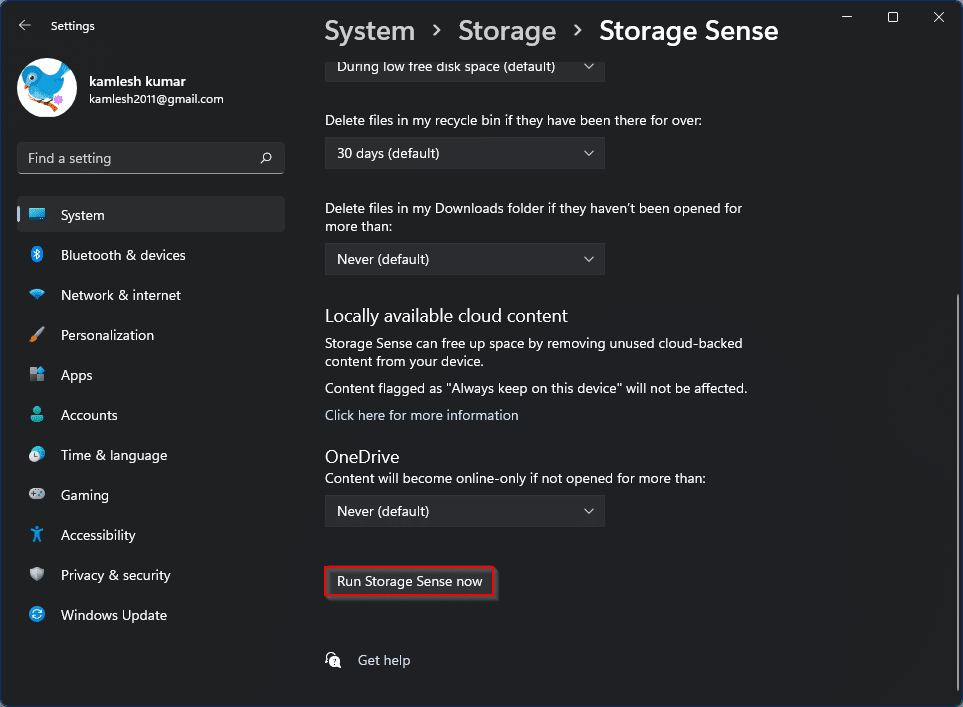Windows 11 contains many folders and files that you may never access, but they are necessary for your system to run properly. It doesn’t stop there; As you use your PC for some time, it keeps generating temporary files and folders that can be safely deleted. These temporary files are unnecessary and can take up a lot of disk space and slow down your PC. These temporary files can include application data, error logs and data, browser data, window updates, and installation files, among other things.
Even if you upgrade from Windows 10 to Windows 11, it will take up about 15 GB of space. Under the Windows installation drive, you will see a Windows.old folder that Microsoft creates in case you want to revert to the previous operating system. However, if you decided to use the latest Windows 11 operating system after upgrading your PC, this Windows.old folder will be useless to you and will unnecessarily take up space on your computer. why shouldn’t we delete these useless files / folders and trim our pc.
If you are running low on disk space or system performance slows, it makes sense to delete the files. In Windows 11, there is no need to manually find temporary files. Microsoft made it easy and cleans up automatically after configuring Storage Sense. Microsoft introduced the Storage Sense feature on Windows 10, and now it’s part of Windows 11 too.
This Gearupwindows article will walk you through configuring Storage Sense and automatically cleaning up temporary files / folders in Windows 11.
How to automatically delete temporary files in Windows 11
Step 1. Launch the Settings app by pressing. to press
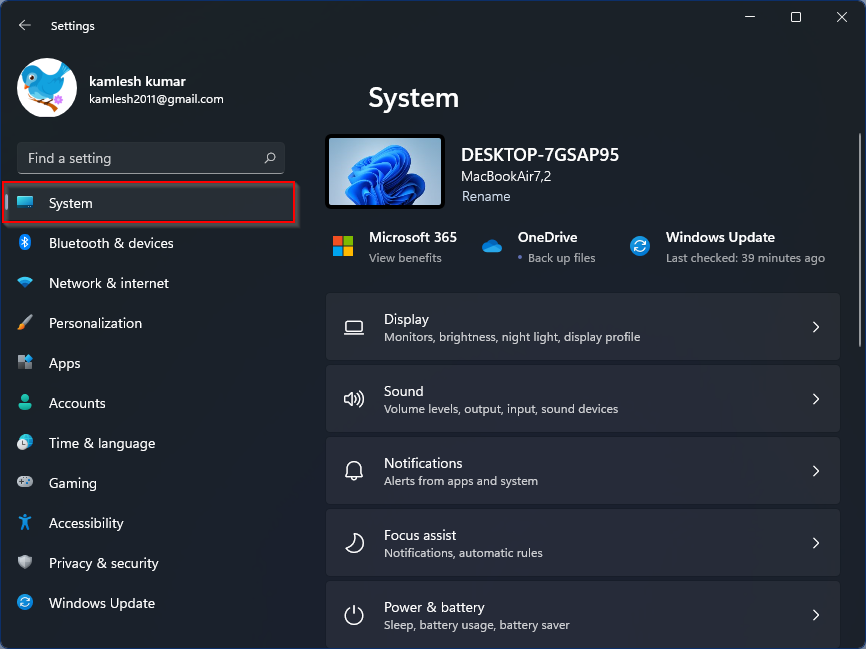
Step 2. On the right side of the system Category, find and click on the
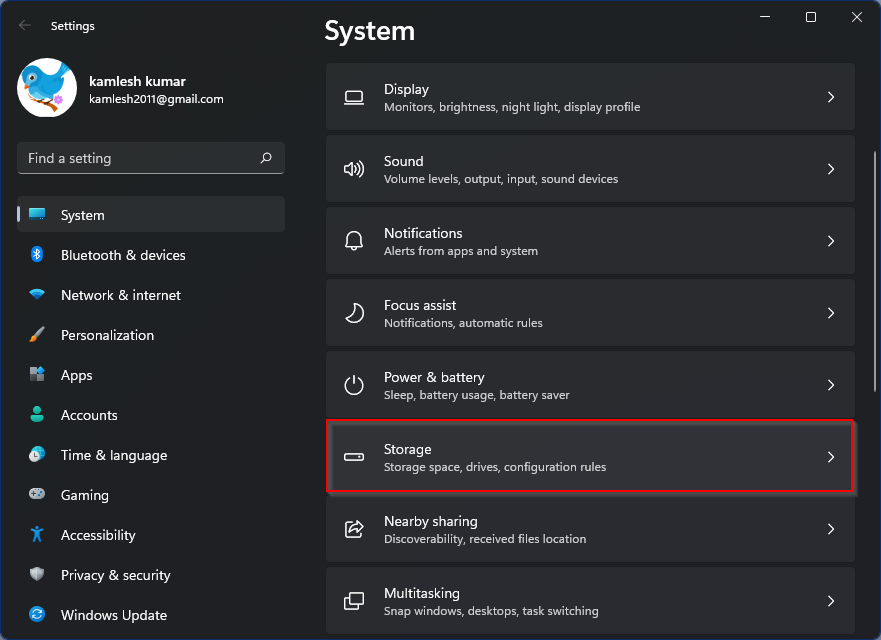
Step 3. Turn on the toggle switch next to that. a Memory sense Possibility. Now click anywhere on Storage Sense to open the settings.
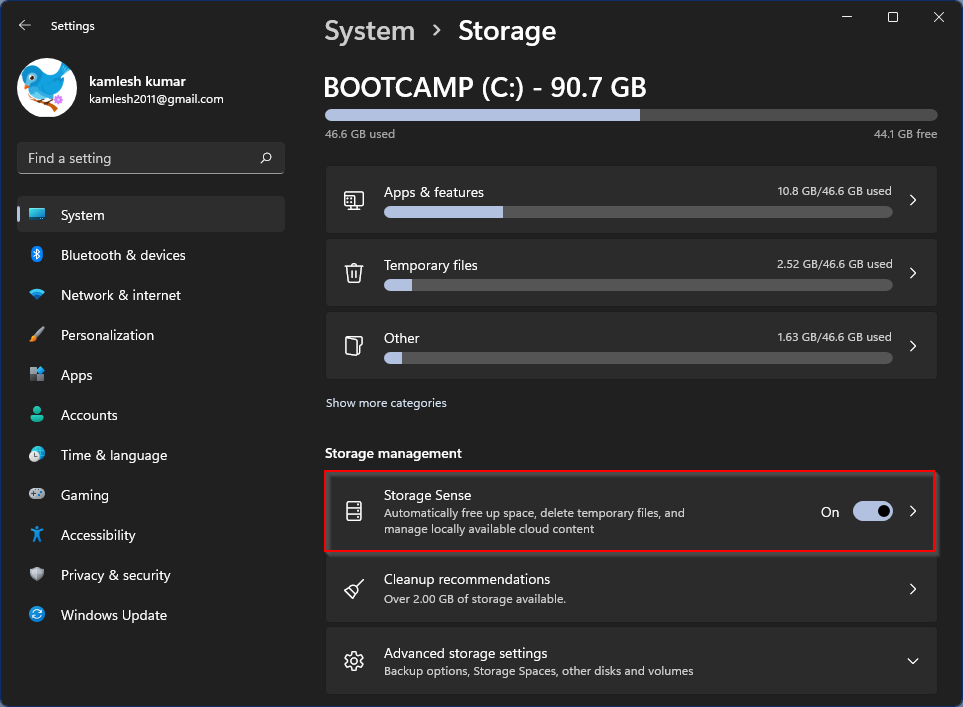
Step 4. In the next window, check the box labeled “Keep Windows running smoothly by automatically cleaning up temporary system and app files. “Turn the switch next to”Automatic cleanup of user content. “
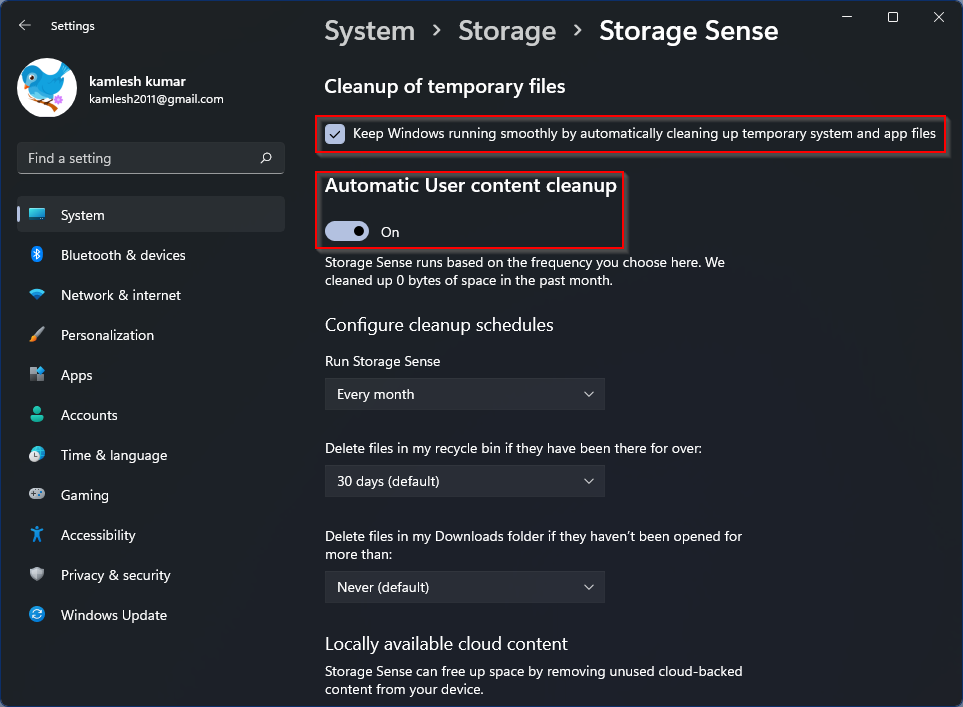
Step 5. Click the Execute storage sense p Drop down menu to find available options. You can see the following settings here: –
- Every day
- Every week
- Every month
- When there is little free space
If you’ve enabled Storage Sense, Windows 11 will clean your PC by default when it’s low on free space. If you have more frequent use of your PC, you can choose either Every Day or Every Week.
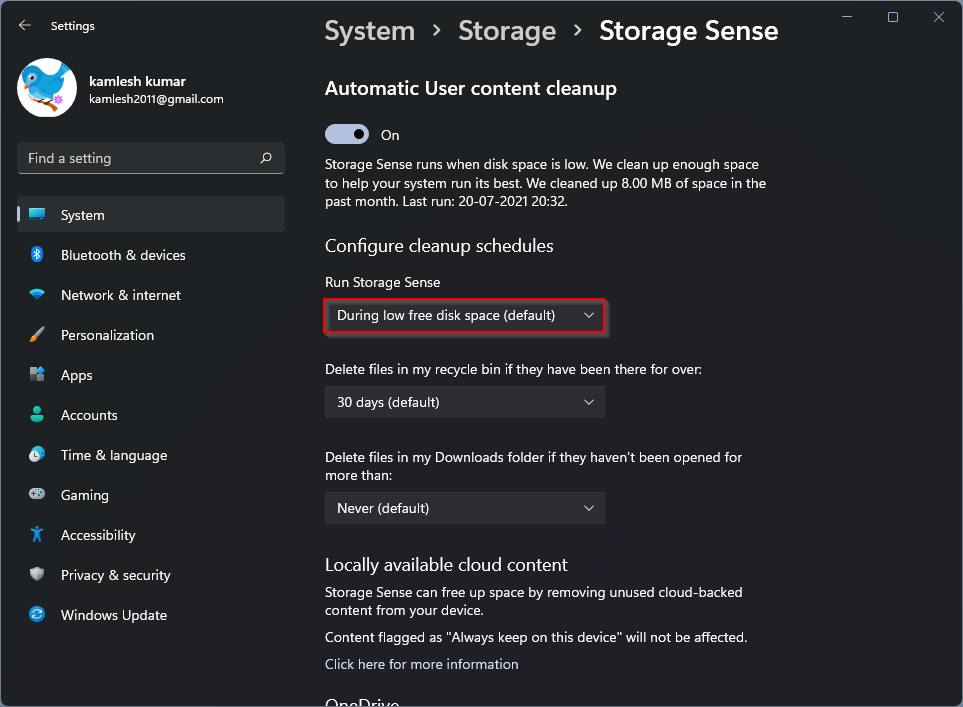
Step 6. Next, after enabling the Storage Sense feature on Windows 11, the Recycle Bin will be emptied in 30 days. However, you have the following options to choose from: –
- 1 day
- 14 days
- 30 days
- 60 days
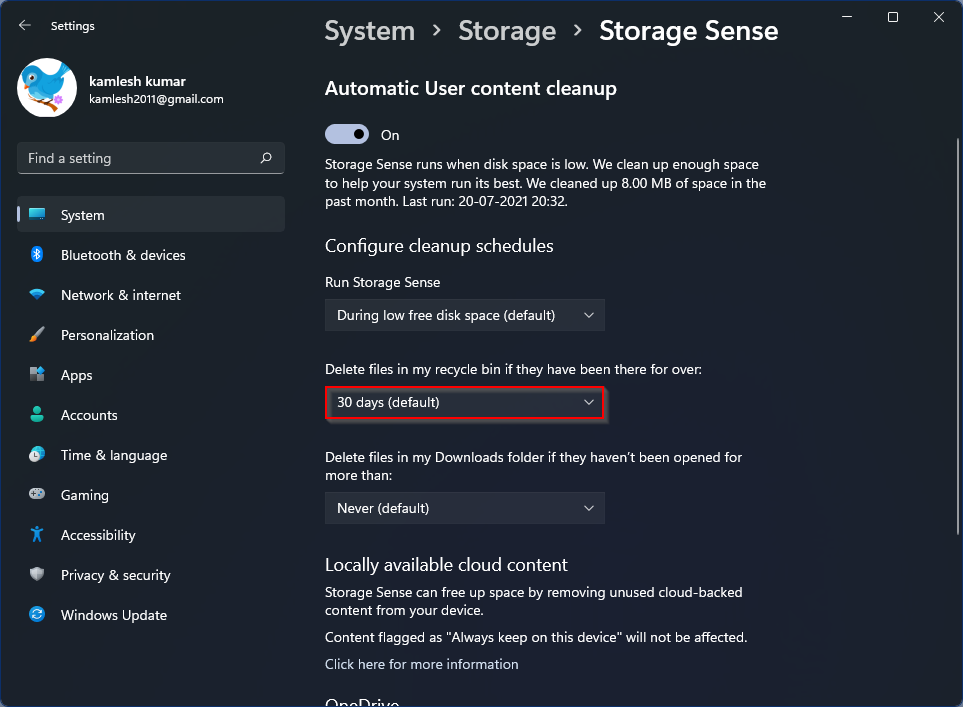
Step 7. You have two other options to clean up your PC; however, it remains disabled by default. Windows 11 can automatically delete files from the Downloads folder if you need them. Next, you can configure OneDrive settings to take content offline if you open it in a few days.
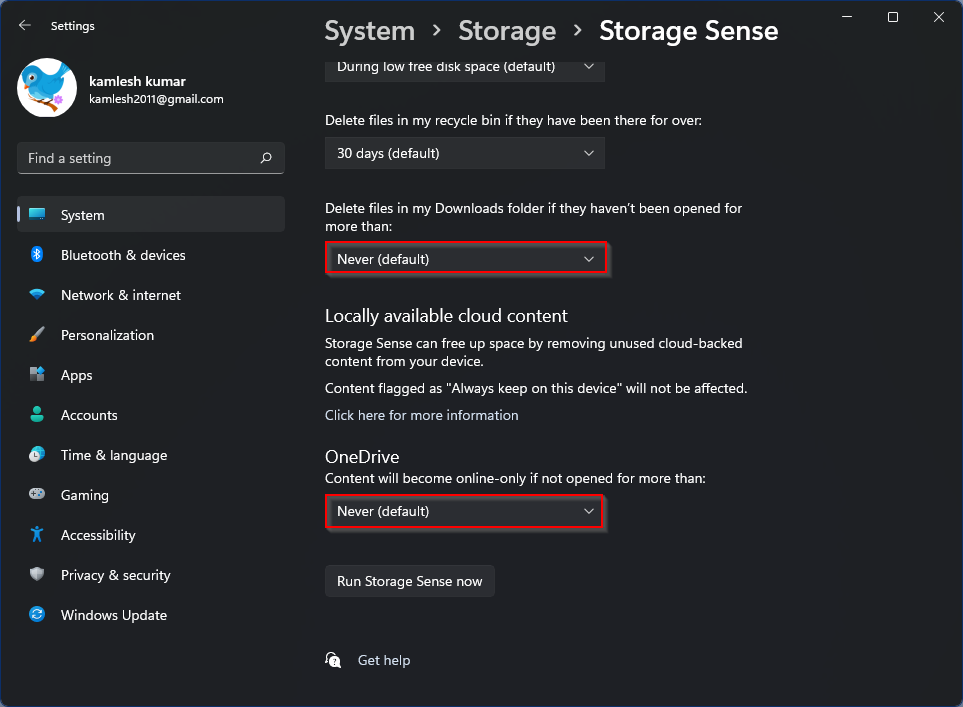
Step 8. Finally, you can also use Storage Sense to manually clean up your Windows PC. To do this, click on the
